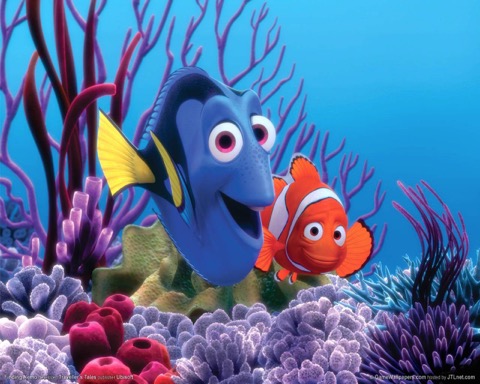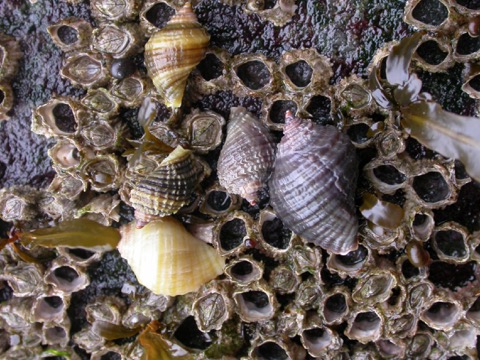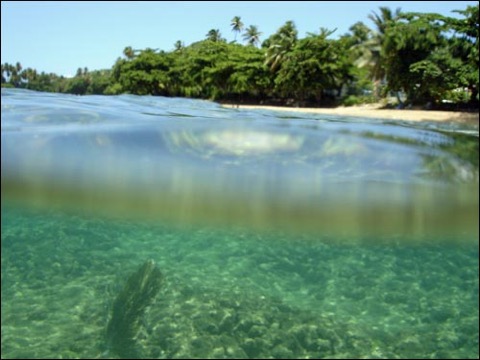science
Family Time
17/10/16 12:38
A little over a year ago, I wrote about how hard it is to keep up with life as well as everything we are challenged to do at work. I'm adding to this a bit today; it is hard for all of us. It is doubly hard for those of us raising kids, and I'm going to add - raising a kid with autism. For some it is hard to identify the boundaries of autism, or people have pretty severe preconceptions of what that means. A really inclusive term I've learned lately is "neurodiversity", which really helps us understand all of the interactions we end up having all day, with all sorts of people. But in particular, it reminds us that some folks are exceptionally talented in some elements of cognitive and/or social thought, and others have a mixture of differences in how they perceive sensory or other stimuli. That - to be vague, because otherwise it is personal business - is my son.
I think we take it for granted that faculty, especially junior faculty who are getting themselves known, will travel to give talks at lots of different universities, do fantastic amounts of outreach, as well as establishing top-notch research programs. But those of us considering the efforts of our junior colleagues need to be aware of the toll that going and giving talks has on family life, not to mention requests from our funding agencies to spend a week out of town to serve on funding panels! This work is necessary, and certainly service for our community of science. But, as with most invitations to give a talk at another school, I see that as an unnecessary burden to put on my family. I'm not going to shirk my support of the community, I pretty much never say no to an ad hoc proposal review, and I do plenty of manuscript editing and reviewing as well.
Travel, however, is something we should all be considering carefully in an age in which information can be shared so readily. I fully recognize that nothing yet replaces putting a bunch of colleagues in a room to discuss ongoing collaboration, to meet over shared interests, to consider the merits of a new idea or proposal. But we should find recognizable modes of service and sharing in our community that don't require so much travel, so much time away from home. There are certainly some junior faculty out there whom I've gotten to know their research because of social media; there are others who are great at other forms of sci-comm.
When you can, save the big trips for fun with your family and friends. You'll value that more some day.
I think we take it for granted that faculty, especially junior faculty who are getting themselves known, will travel to give talks at lots of different universities, do fantastic amounts of outreach, as well as establishing top-notch research programs. But those of us considering the efforts of our junior colleagues need to be aware of the toll that going and giving talks has on family life, not to mention requests from our funding agencies to spend a week out of town to serve on funding panels! This work is necessary, and certainly service for our community of science. But, as with most invitations to give a talk at another school, I see that as an unnecessary burden to put on my family. I'm not going to shirk my support of the community, I pretty much never say no to an ad hoc proposal review, and I do plenty of manuscript editing and reviewing as well.
Travel, however, is something we should all be considering carefully in an age in which information can be shared so readily. I fully recognize that nothing yet replaces putting a bunch of colleagues in a room to discuss ongoing collaboration, to meet over shared interests, to consider the merits of a new idea or proposal. But we should find recognizable modes of service and sharing in our community that don't require so much travel, so much time away from home. There are certainly some junior faculty out there whom I've gotten to know their research because of social media; there are others who are great at other forms of sci-comm.
When you can, save the big trips for fun with your family and friends. You'll value that more some day.
Outreach 2
03/05/11 11:38
Wow. Today I went to Fowler Drive Elementary and met with the 4th graders, after being invited by teacher Frannie Gay. I brought some slides to show on my iPad (today’s fourth-grade classrooms are SO cool compared to the dreary situation I went through 30 years ago; they have integrated LCD projectors with a projection screen that doubles as touch-pad) and the kids must have asked me 100 questions about corals, sharks, bacteria, washing hands, Finding Nemo, and dirty water. Mission accomplished.

Faculty from UGA do this each spring as part of our “LemonAid” program, started a couple years ago when we were being furloughed thanks to lousy budgets. When life gives you lemons, get it? So on furlough days faculty would go to local schools; this year, no furloughs but it seems a good tradition to keep up. And, it gives me one of those extremely rare opportunities to not just claim to be a marine biologist, but actually feel like I’m doing something that might change something for the better on this world. Maybe one of those kids will get the overall message about clean water and take it to heart.

Faculty from UGA do this each spring as part of our “LemonAid” program, started a couple years ago when we were being furloughed thanks to lousy budgets. When life gives you lemons, get it? So on furlough days faculty would go to local schools; this year, no furloughs but it seems a good tradition to keep up. And, it gives me one of those extremely rare opportunities to not just claim to be a marine biologist, but actually feel like I’m doing something that might change something for the better on this world. Maybe one of those kids will get the overall message about clean water and take it to heart.
North Atlantic
07/10/10 10:46
It’s funny, I made my start as a population geneticist championing the cause of the North Atlantic Ocean, and I don’t think about it as often these days. Our careers creep in many funny directions, sometimes pulled by funding opportunities and sometimes by fortuitous collaboration.

The above image was snared from the website of Geoff Trussell’s lab at Northeastern University. Geoff is one of my many great colleagues that I know from interactions at the CORONA meetings and every year that I can make it to the Benthic meetings on the east coast (and really, who would want to miss these meetings? Nice one, Jeremy...). Anyway, the image is primarily of the dogwhelk, Nucella lapillus. A really beautiful snail, lots of color variation, interesting genetic patterns, part of my dissertation.
The work is finally being updated, with modern statistical (ABC) approaches, by my good friend and colleague Mike Hickerson and his student and postdoc (particularly lead author Katriina Ilves). The results are clearly starting to change. There are taxonomic controls on who survived glaciation and who didn’t - on the east coast of North America, at least - rather than larval life history controls, if the statistics tell the whole story. What is amazing is how big of an impact that paper had in 2001, and I suspect this paper will have a big impact in 2010.... and yet we still clearly know so little. Most of these species have still only been assayed for mitochondrial variation. The time will come soon when we can apply for funding to tackle the same community using variation across the entire genome.

The above image was snared from the website of Geoff Trussell’s lab at Northeastern University. Geoff is one of my many great colleagues that I know from interactions at the CORONA meetings and every year that I can make it to the Benthic meetings on the east coast (and really, who would want to miss these meetings? Nice one, Jeremy...). Anyway, the image is primarily of the dogwhelk, Nucella lapillus. A really beautiful snail, lots of color variation, interesting genetic patterns, part of my dissertation.
The work is finally being updated, with modern statistical (ABC) approaches, by my good friend and colleague Mike Hickerson and his student and postdoc (particularly lead author Katriina Ilves). The results are clearly starting to change. There are taxonomic controls on who survived glaciation and who didn’t - on the east coast of North America, at least - rather than larval life history controls, if the statistics tell the whole story. What is amazing is how big of an impact that paper had in 2001, and I suspect this paper will have a big impact in 2010.... and yet we still clearly know so little. Most of these species have still only been assayed for mitochondrial variation. The time will come soon when we can apply for funding to tackle the same community using variation across the entire genome.
Up-and-comers
13/09/10 09:24

The image above is from Iliana Baums’ lab - one of several working on the imperiled elkhorn coral, Acropora palmata (and really, most of the rest of us are following the lead of Iliana and her students!). This picture was taken in Puerto Rico, and I snagged it from the web to commemorate another addition to the fleet of researchers working on these corals. SUNFIG student Jesyka Meléndez, who spent the summer of 2009 in my lab learning molecular techniques and exploring a metapopulation (or at least thats what we’re calling it for now) of Melampus bidentatus on the Georgia coast, is from the University of Puerto Rico - Cayey. She did a great job in my lab as a freshman, and has now been awarded an EPA fellowship to study pollution and sedimentation on Acropora reefs in Puerto Rico. It’s actually way more fun to see what young enthusiastic people can do, and want to do, than to track my aging colleagues and their publications.
For that matter, here is a 16 year old who has done a high school research project that is essentially our big EID project on a severe budget. It blows my mind what students have access to now, compared to the things we were stuck with when I was in high school (and I’m not that old). You can do comparative (or human) anatomy on an iPad now, you can easily do PCR and electrophoresis in a high school lab, basically kids have the opportunity to do and see anything now. It blows my mind, especially with imagining what my almost-4-year-old will be doing in the next 20 years!
Epistemology
17/08/10 16:31
Almost 20 years ago (gasp!), I took a course in history and philosophy of science. At the University of Oklahoma, there is in fact an extremely strong program in this field thanks largely to the DeGolyer collections, a large contribution of important works in this field. I found it a fascinating branch of my interest in science, and though that isn’t exactly what I ended up doing it is always fun to come across scientists who also like delving into the how-we-know-what-we-know. Massimo Pigliucci has made the conversion from biologist to philosopher, for example, and has a blog that often discusses the fertile ground between the two fields.
We (the Genetics department, more specifically Brian Condie and myself) are teaching a new course this year for our incoming graduate students that will be playing around with this theme as well. It is called “Problems in Genetics” but the goal is not to learn the latest in quantitave PCR approaches, but to learn more about how good questions are asked, and why. We’ve started the semester off with a chapter from E.O. Wilson’s Consilience, and it may have been a big surprise to the students to be reading something like this in a Genetics class but I hope this pays off. We really want to break our new students of some of the habits that undergrad scientists get into. They need to become skeptical of the literature while understanding its value; they need to understand how to develop questions themselves; and they need to understand the conceptual breadth of our field, and how it attaches to other fields like ecology and biochemistry.
We’ll be revisiting old experiments and how they guide us today; discussing what models are, and the value of both conceptual and mathematical approaches. Most of all, we want to finally squash the lack of understanding that affects almost every academic department, the narrowness that leads to disdain for compatriots simply because they aren’t studying something so directly tied to what we are doing. Put simply, we want a student to understand why somebody is asking the question and using the methods, even if that student doesn’t care to ask that question or use that method themselves.
Wish us luck. Welcome to the new school year.
We (the Genetics department, more specifically Brian Condie and myself) are teaching a new course this year for our incoming graduate students that will be playing around with this theme as well. It is called “Problems in Genetics” but the goal is not to learn the latest in quantitave PCR approaches, but to learn more about how good questions are asked, and why. We’ve started the semester off with a chapter from E.O. Wilson’s Consilience, and it may have been a big surprise to the students to be reading something like this in a Genetics class but I hope this pays off. We really want to break our new students of some of the habits that undergrad scientists get into. They need to become skeptical of the literature while understanding its value; they need to understand how to develop questions themselves; and they need to understand the conceptual breadth of our field, and how it attaches to other fields like ecology and biochemistry.
We’ll be revisiting old experiments and how they guide us today; discussing what models are, and the value of both conceptual and mathematical approaches. Most of all, we want to finally squash the lack of understanding that affects almost every academic department, the narrowness that leads to disdain for compatriots simply because they aren’t studying something so directly tied to what we are doing. Put simply, we want a student to understand why somebody is asking the question and using the methods, even if that student doesn’t care to ask that question or use that method themselves.
Wish us luck. Welcome to the new school year.